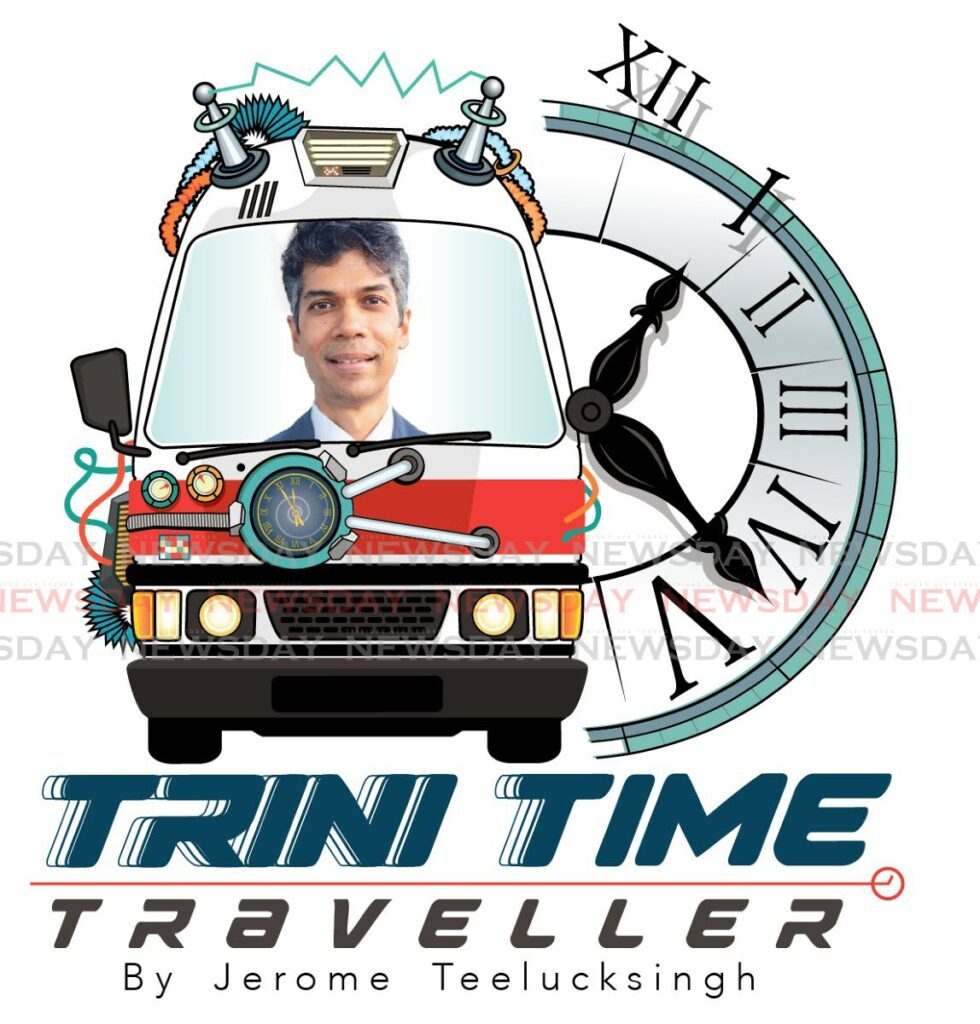A genius suffers two election defeats

SOME OLDER citizens will recall the contributions of Dr Rudranath Capildeo to TT. He remains one of our unsung heroes.
He was born in 1920 in Chaguanas and in 1931 began attending Queen’s Royal College. He would win the Jerningham Gold Medal, in 1937, and an Island Scholarship in 1939.
The political scenario of the 1960s is one of two personalities – Dr Eric Williams and Dr Capildeo. It was an era of doctor politics…two young colonials of Indian and African descent. Both had unique charisma and possessed doctorates.
On one was bestowed the unofficial title of “Father of the Nation”; the other was often mocked as a “mad scientist.” Some might have viewed it as a clash between humanities and science.
However, to many people the battle was more than prime minister vs leader of the opposition.
The ridicule and treatment of Capildeo by the ruling People’s National Movement (PNM) and its supporters should not be a surprise. Capildeo cannot simply be dismissed as an ordinary academic. He had an extraordinary mind and held lectureships at University College and Westfield College in London. In addition, the University of Khartoum (in Sudan, Africa) was honoured when he briefly served there as an assistant professor in 1955.
In 1956, he returned to England and studied law. Two years later he was called to the Bar and admitted to practise law.
His theory of rotation and gravity, known as “Capildeo’s Theory,” was compulsory textbook study for examination at several universities. Furthermore, scientists at the US space agency, National Aeronautics and Space Administration (NASA), have used his theory in their space exploration programmes. Students and advanced researchers used his authoritative mathematics publication, Vector Algebra Mechanics (1968). Several of his articles have been acclaimed in various internationally recognised scientific journals, including Nature.
Even though Capildeo was appointed principal of the Trinidad Polytechnic in 1959, it seemed to be an effort to keep him docile. Indeed, Capildeo was powerless, as the ruling PNM neglected his demands to increase staffing and changes to the curriculum. Eventually, a frustrated Capildeo decided to quit this job and enter the political domain. He was entrapped in the Indian experiment of finding a suitable educated leader comparable to the stature of Williams. But while Williams forged a closely-knit political party in the Afro-dominated PNM, Capildeo led a perilously fragmented brigade.
Some Indians joined the PNM, but a large proportion of Indo-Trinidadians comprised the membership base of the Democratic Labour Party (DLP). Capildeo would soon witness the implosion and irreparable fractures within the hierarchy of the DLP, which characterised the party’s fragility.
Williams, as premier and later prime minister of TT, held the advantageous position of influencing state policy. It was one of the benefits of the Westminster system. The PNM was wounded after its defeat (as part of the West Indies Federal Labour Party) in the earlier Federal elections of 1958. The government employed its parliamentary advantage, giving approval to skilfully crafted legislation on electoral reform, creating an undefeatable monster against any opposition.
Measures included the use of 1,000 voting machines (from the US) to replace the ballot box, the introduction of identification cards for voters, and a new configuration of the electoral boundaries to create a further six seats in Parliament.
Even the manner in which electoral boundaries were drawn made it difficult for the DLP to win a majority of seats. Williams would create a well-oiled political machinery and the PNM won 20 seats while the DLP secured ten.
What were the political survival possibilities for Capildeo? TT was in the throes of the most intense of electoral battles. Capildeo consequently led the charge from unsophisticated platforms in the savannahs of Port of Spain and Aranguez.
On September 17, 1961, at a political meeting at the Aranguez Savannah, Capildeo openly condemned the use of voting machines, referring to the US, where it was alleged that the infamous machines could be rigged to produce specific results.
The PNM would again claim victory in the 1966 elections.
In 1963, Capildeo, a Hindu, published a booklet, The Gita – A Personal View. His illness and frail health affected his lecturing and political career. In 1968, Ivar Oxaal, in Black Intellectuals Come to Power, recognised the genius: “At 40 Capildeo can rightly be called ‘Trinidad’s Most Educated Man.’”
Few would disagree that Dr Capildeo, holder of the Trinity Cross, who died in 1970, deserves his rightful place in history.


Comments
"A genius suffers two election defeats"